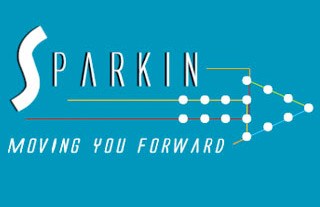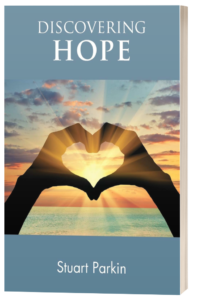Optimism Is Not A Choice
For the last five years on and off I’ve spent much time caring for and seeing my mother’s cruel decline. But I’m realistic and naturally chose to default to ‘the good in situations’ and while this subject truly depresses me, I pivot to how lucky am I to have had this mother/who is still around at my age etcetera.
I got this optimistic outlook/default mode from her. It can be innate but I believe largely this is something you learn and this is the best news. Because, personally for sure, but professionally absolutely, a positive state of mind does much more than help you cope, as even when the proverbial shit has covered the fan, if you exhibit an optimistic approach and what that entails, you are more likely to be of service to others, (colleagues and clients alike).
It’s easy to pontificate about what we need to be or not reality is, when most of us are struggling to keep up, to meet deadlines, we just do the best we can do irrespective and our mentality is not something we actively have time to dwell on. But I’m suggesting when you can think about, to think about steps to consistently be it.
Optimism I contest, is more important than ever. Both the pace of change, scant resources, performance-oriented marketing, business uncertainty, the increasing challenge of effective media cut through, all make the need for an effective problem solving/solution- oriented mindset essential. This is much easier if ‘positive’ is baked in.
A colleague or client dragged along by negativity will feel very differently as opposed to working with someone with a ‘can do’ approach, albeit one that is realistic about challenges. They may actually want to work with the person again!
And while an optimist may be easier to work with (assuming like for like technical ability with someone more pessimistic) the real reasons for wanting to work with an optimist relate to the likely quality of thinking and solution generation they bring.
Being optimistic makes you more professionally effective. Optimists offer,
‘A mental attitude characterized by hope and confidence in success and a positive future.’
Or as Martin Seligman suggests,
‘The basis of optimism does not lie in positive phrases or images of victory, but in the way you think about causes” (Martin Seligman)
Optimistic strategists are more likely to offer a solution-oriented mindset. But why?
Optimists are:
1. Outward looking/curious, essential for understanding others.
2. Actively seek engagement /Are more open, curious people who discover a broader range of options.
3. Enjoy communicating and are likely to garner a greater quality of information as individuals respond to their approach and energy. Engagement will likely gain a greater breadth of understanding and therefore ability to reach potential optimal paths/solutions.
Can’t Pessimists Thrive?
A bit like empathy, 99% of strategists believe they are optimists. Truth is, most of us can show up ‘positive’ but those that have maximum impact are those that have optimism baked in; They are not trying to be it they are it. They naturally have a constructive mindset,’ they consistently show up glass and solution optimal. And it’s the consistency that is key both for you and how others experience you.
“The pessimist sees difficulty in every opportunity. The optimist sees opportunity in every difficulty”. (Winston Churchill)
Pessimists are of course able to be highly effective strategists. The point is, those who default to the optimistic are better able to reveal and capitalise on any perceivable spectrum of options, because of the way they show up. In large part because of this, they are the strategists that not only cope with change but have the capacity to lead clients through it.
And if not for effectiveness at work, for you! A 2025 English longitudinal study of ageing, (ELSA) concluded what many recent surveys have, that having a consistent positive outlook enhances emotional and cognitive function, reduced stress levels and greater life expectancy.
Getting Consistent Freelance Work
I asked strategists:
‘What actions will optimize chances of consistent freelance work?’
Given that the number of strategists freelancing is significantly up in 2025, knowing the answer to this is more important than ever.
Invest in your network before you need it : The most sustainable freelance careers are built on relationships – keeping in touch with peers, former colleagues, and clients.
Differentiate/Be clear about your value : In a crowded market, it is critical for freelancers to define what they uniquely bring – Own a specialty: Create an interesting POV about a strategy-related topic. Create your own set of ‘thinking tools’. Clarity builds confidence, both for the freelancer and for those considering them.
Be Creative – Inquire whether a posted job can be turned into a permalancer role; Lay the groundwork for the next project with your client before you finish the current one.
Targeting – Consider an opportunity hypothesis for a category/industry, then look for relatively weak brands who may be open to learning/developing your work.
– Lay the groundwork for the next project with your client before you finish the current one.
Line up your ducks – Be ready to provide supporting information: Having a solid line up of references/cases. I’ve always collected them wherever I’ve been
Communicate availability: If people don’t hear from you they will hear from others and if they know you/rate you, they may just assume you’re busy.
The power of on-going contact – Maintain saliency by gently contacting your connections every 6 months. Key here is how often you connect (don’t overdo it) and the tone with which you communicate.
Make outreach worth ‘their’ time – Provide material or ideas that help the person (in some way) that you’re communicating with.
Actively market/’tell your story’ both one-to-one and through social media.
Ensure you build your personal brand and get recognition for the freelance work you do, don’t let it be invisible work you do in secret for a brand/agency/client.
Reputation – Ultimately, your reputation sells. Do amazing work/Be easy to work with.
Adapt/Re-tool – DO NOT REST ON LAURELS. While you will always need to prove that you moved the needle for others, in order to get something new, doing the same old thing without demonstrating you can integrate new things (in today’s case, things like ML and AI), nobody is going to care.
Reality check – Many of the above might seem fairly obvious but for some reason, habit, fear, sloth, being too busy, being too afraid to back ourselves, many of the above actions aren’t consistently taken. So perhaps in order to get consistent work, ensure you’re properly motivated (perhaps because of the work you’re targeting) and if you are, you will more consistently take the steps to get the work.
All success,
Activate to view larger image,
Strategic Planning – Keeping Your Job (8/25) (5 min’ read)
After several months of net job losses last month we were back to net hiring of agency personnel. (AdAge). Finally!
Though from a strategic planning perspective, as many of you will corroborate, the jobs outlook remains very uncertain. This uncertainty stems as much from industry consolidation as it does from incorporation of new technologies notably AI, while the biggest drain on confidence relates to client uncertainty borne by uncertain macroeconomic factors.
Given the context of continued uncertainty, I asked strategists what they believed is critical to keeping their jobs. A big ‘thank you’ to all of you for generously finding the time to provide your perspective.
Ensure you are reading the room – Many strategists get fired because they fail to ‘read the room’/understand what the client ‘actually’ wants – Meaning, stress-testing your thinking before it hits the boardroom.
When to theorize and when to build – The strategists who survive – Aren’t necessarily the smartest ones in the room. They’re the ones who know when to sharpen their pencils and when to put them down and start building.
Be useful – Our job isn’t to be right. It’s to be useful. Recognize which situation you’re in. Is this a moment for strategic brilliance or strategic service?
Business objective focus – Double down on being the translator between business objectives and the potential of right brain creativity to achieve them.
Directly connect with the consumer – AI is great but simply sitting behind your laptop theorizing won’t cut it. Get out there. Talk to actual customers
Understanding your value (to the client particularly) and how you deliver it. There’s not enough honest assessment or understanding of what that value really is.
The goal is to create a robust strategy (not a perfect one) that can survive contact with reality.
Create space with clients for things to emerge that nobody is thinking about. That needs time and connection. Challenging but if done, makes the difference.
Be proactive! Get out of a transactional mindset. Too many strategists wait to be given a task, and then go back with an output
Stay curious and have a strong POV – Curiosity drives learning and allows for you to provide clarity and a direction.
Stay close to revenue – Insightful thinking should be enough, but thinking needs to be tied to revenue generation.
Be easy to work with – Heroes are great, but advertising and marketing requires a team effort. Ensure people genuinely enjoy working with you.
Be a more empathetic person/leader/client supporter. Too many people think they’re empathetic. Few really are.
Network internally – The quality of your work should shine through but don’t rely on it.
Get on the AI bandwagon – Or perhaps better put, get ahead of the bandwagon – Incorporate AI’s ability to speed up and optimize your ability to help creatives and clients.
Freelancers – Where to Find Work Full-timers – Indications of Job Security
Around 39% of CMOs reported that they are looking to reduce spending on labor this year, mostly by simplifying overlapping roles and reducing total headcount. (AdAge, 5/25)
Let’s call this what it is, one of the most uncertain times for finding and keeping work. But as they say, this is the time when great thinking cuts through, great thinking by you for clients and their business and for you, in terms of how you manage your own career.
If you’re freelancing, where is business likley to come from?
If you’re full-time, how can you understand your relative degree of job security and act accordingly.
Below is a list with some key areas to think about/get answers to, to clarify whether there’s work available and or/likely to remain so.
Are you in an organisation that invests in and sells what you do? Strategic Planning!
What are examples of strategy’s perceived value? Clients/Senior Management/ Creatives?
Is there a strategist represented in the CSuite?
Is the strategy lead known to value team/people/like mentoring? Is strategy lead someone that picks up a pen and creates work vs commenting on others work? Hands on working CSO or hands off CSO as reviewer?
People longevity – What’s the turnover of staff?
People longevity – How does the company handle mistakes and failure?
People longevity – Does the company value and reward doing what’s right for colleagues and clients or what’s easiest and politically popular?
Strategy Turnover – What’s the turnover of strategists?
Strategy Group – Size compared to agency personnel? 1/10 ratio is good
Strategy Team build or reduction – How fast is the team size changing?
Culture – Does the organization value fast reaction over strategic intent & purposeful action?
Culture – Is strategic planning client facing and leading or focused on making others look smart in the organization?
Culture – are you expected to present your own thinking or give that to others to present on your behalf?
Client Longevity – What is the longevity of clients
Client Longevity – Can you prove your value to clients in tangible commercial terms?
Client Longevity – Are you gaining more or less of the client’s business from competitive agencies?
Client Mix – What is the agency reliance. One big client or a mix?
Clients and Strategy – Are agency clients known to value strategy?
Client Type – Do clients rely on imports or exports in full or in part?
Client Business – Is the client’s business based in everyday consumables? Or business in growth areas? Or one that’s dominating its space or a ‘rising star?’







